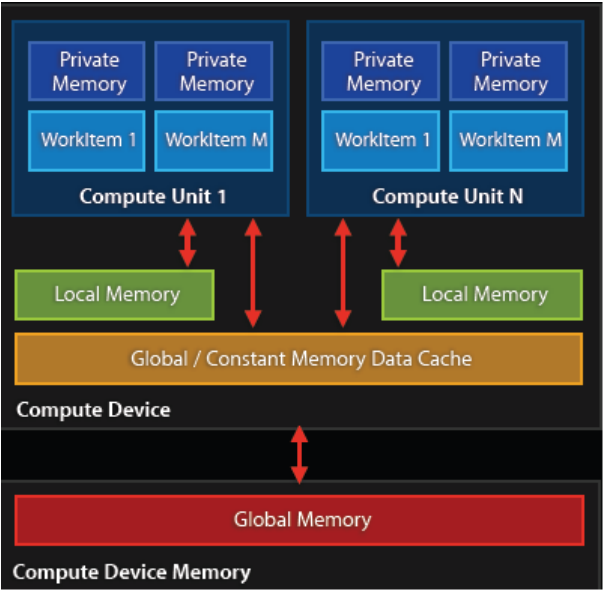I actually started learning CUDA for GPGPU first, but since I do
my work with a MacBook Air (late 2012 model); I quickly realized
I couldn't run CUDA code. My machine has an Intel HD Graphics 4000, I know, it sucks,
but still usuable! My search on how to best make use of it led me to OpenCL.
My interests with OpenCL is primarly motivated by my interests in Deep Learning. I want a better understanding of how these frameworks are making use of GPGPU to blaze through model training.
Here we are now, a repo of OpenCL examples. I'll be adding more examples here as I pickup more of OpenCL. I am thinking each example will get a bit more complex.
- Mac OSX
- OpenCL 1.2
- C++ 11
- cmake 3.7
- Clone this repo and
cdin this repo. - Run
mkdir build && cd build - Run
cmake .. && make
If everything has been correctly installed, you should be able to build
the examples with no problems. Check out the CMakeLists.txt file for info
on how the examples are being built.
Note, I already added the C++ header for OpenCL 1.x in the libs directory.
However, if you are for example working with OpenCL 2 you can create your own
header file. Head over to the KhronosGroup OpenCL-CLHPP repo
and do the following.
- Run
git clone https://github.com/KhronosGroup/OpenCL-CLHPP - Run
cd OpenCL-CLHPP - Run
python gen_cl_hpp.py -i input_cl2.hpp -o cl2.hpp - Move the generated header file
cl2.hppinto thelibsdirectory. - Profit!
You're here so I don't need to convince you that parallel computing is awesome and the future. I don't expect you to become an expert after you've gone through this repo, but I do hope you at least get an overview of how to think in OpenCL.
OpenCL™ (Open Computing Language) is the open, royalty-free standard for cross-platform, parallel programming of diverse processors found in personal computers, servers, mobile devices and embedded platforms. - khronos site
The following are terms to know:
- Platform: Vendor specific OpenCL implementation.
- Host: The client code that is running on the CPU. Basically your application.
- Device: The physical devices you have that support OpenCL (CPU/GPU/FPGA etc..)
- Context: Devices you select to work together.
- Kernel: The function that is run on the device and does the work.
- Work Item: A unit of work that executes a kernel.
- Work Group: A collection of work items.
- Command Queue: The only way to tell a device what to do.
- Buffer: A chunk of memory on the device.
- Memory: Can be global/local/private/constant (more on this later.)
- Compute Unit: Think of a GPU core.
